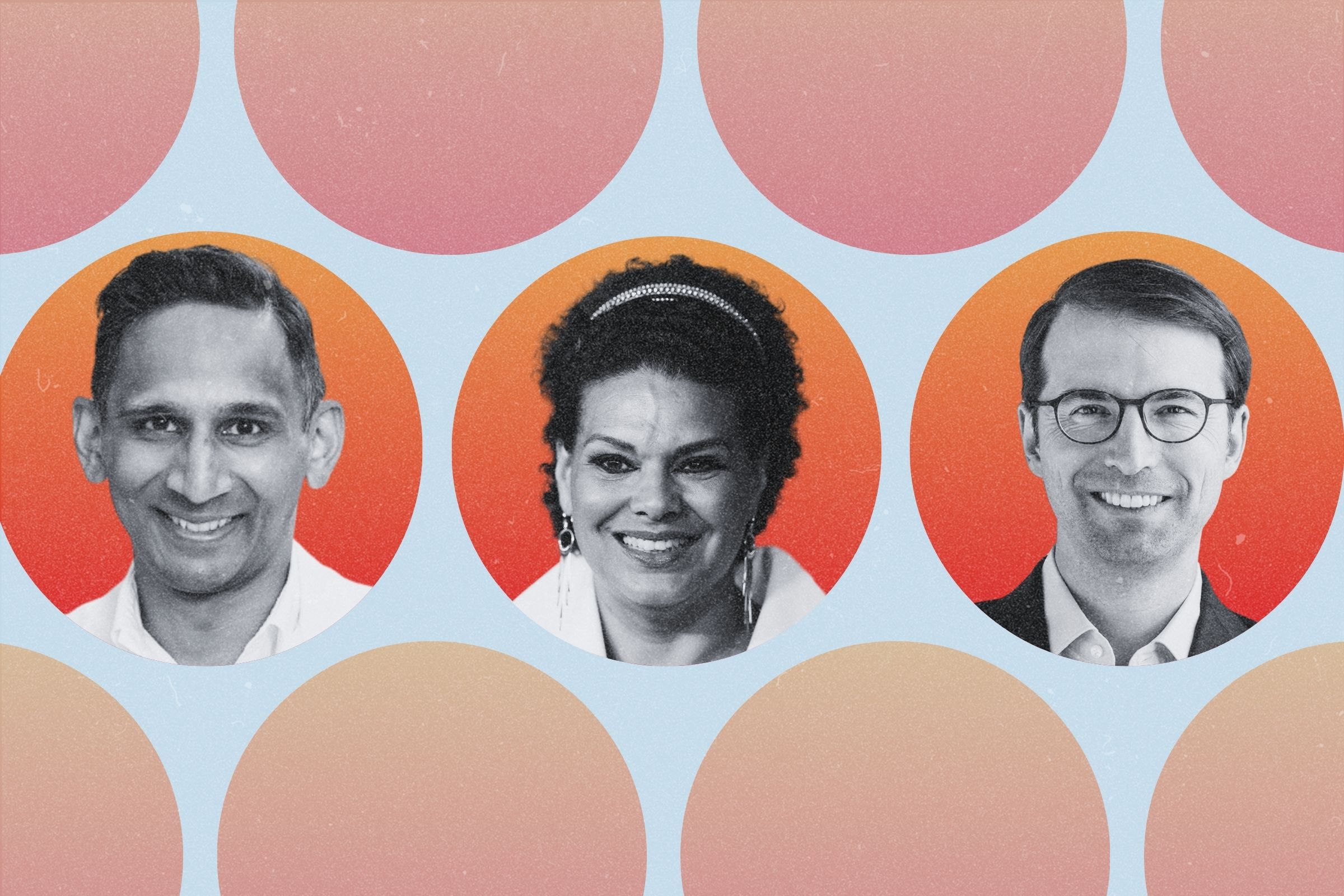Sara Sidner, anchor and senior national correspondent for CNN, told the audience at the TIME100 Health Impact Dinner on Tuesday night that she did 16 rounds of chemotherapy after she was diagnosed with stage III breast cancer in 2023—and worked the entire time through it. The room erupted into loud applause.
“It is possible to live your life while trying to kill cancer,” Sidner said. “We’ve come such a long way, and I just quickly want to say to this room: whoever is in this room that is a nurse, a doctor, a physician, a researcher, someone who is creating drugs for us—thank you. Thank you for the research. Thank you for your work; we need it so, so much.”
[time-brightcove not-tgx=”true”]
Sidner was joined onstage by Dr. Vinod Balachandran, surgeon-scientist and director of the Olayan Center for Cancer Vaccines at the Memorial Sloan Kettering Cancer Center, and Victor Bulto, president of the U.S. unit for Novartis, which sponsored the event in New York City. The three appeared on a panel moderated by TIME senior health correspondent Alice Park to discuss the groundbreaking innovations in cancer detection, treatment, and prevention—and the research that still needs to be done.
Sidner, who is a 2025 TIME Closers honoree, said she hadn’t always planned on publicly sharing her cancer diagnosis. But when she learned she had stage III breast cancer, she realized she wouldn’t be able to keep it a secret from everyone.
“You have spent your life telling other people’s stories—maybe this is something you need to tell, and tell it in a really honest, sometimes embarrassing, way. Tell people what it’s like going through this journey,” she recalled thinking.
Balachandran, who is a 2025 TIME100 Health honoree, called cancer “the most urgent health crisis of our lifetime.” In the United States, one in two men and one in three women will be diagnosed with cancer during their life, according to the American Cancer Society.
Part of what’s challenging, he said, is that cancer is “an intelligent cell that is constantly programmed to evolve.”
“We have historically been treating it with drugs that do not evolve with an evolving cancer,” Balachandran said. “Even though cancer is intelligent, we do not fight it with a medicine that is intelligent. We’ve always envisioned developing intelligent medicines to diagnose and treat cancer, but we have not really been able to achieve this goal.”
Now, though, Balachandran said he thinks the health industry has made progress on this. New technologies, including AI, and research advancements—such as understanding how the immune system recognizes cancer—could help medical providers diagnose cancer earlier and treat cancer more effectively, Balachandran said. Balachandran has used mRNA technology to create personalized vaccines that research has indicated could boost patients’ immune systems to help treat pancreatic cancer. Pancreatic cancer is the third-leading cause of cancer death in the U.S.
Bulto said that it’s imperative to continue making grounds on the medicine but also on understanding the patient experience.
“On the one hand, we have a lot to do on the science front, but also, the more we learn about the science, the more we are learning … that we have to become as good or as innovative in how we bring those medicines to patients as how innovative the medicines themselves are,” Bulto said. “We have spent a lot of time trying to understand the lived experience of patients, the felt experience of patients.”
He said that whatever innovations are developed for cancer treatment, it’s critical to ensure they’re distributed to all patients who need them—whether they live in New York City or in a rural community.
At the same time that advancements are being made in the cancer field, research funding through the U.S. National Institutes of Health is at risk under the Trump Administration. Despite that, Balachandran said he is “optimistic.”
“We’ve made so much progress, so it’s really hard to stop this level of progress when results are really transformative and really sort of ushering in a next era of cancer care,” he said. “If they work, how could you not support it? Because cancer is something that affects all of us.”
To close out the discussion, Park asked the panelists: will we cure cancer?
Balachandran replied immediately: Yes.
“We already are curing cancer,” he said. “The question is: how more can we cure cancer, and how more effectively can we cure cancer, and how more simplistically can we cure cancer with less side effects or less medication, and for whom, and for more people?”
“The next revolution of cancer care is really about expanding access to more patients, expanding more treatments with less side effects for people,” he continued.
Sidner and Bulto said they agreed with Balachandran, but Sidner added that it was critical to ensure that cancer is cured equitably. She pointed out that Black women are nearly 40% more likely than their white counterparts to die from breast cancer.
“Something’s wrong there,” she said. “And so for whom will cancer be cured is a huge question that needs to be addressed.”
The TIME100 Impact Dinner: Leaders Shaping the Future of Health was sponsored by Novartis and FIGS.

